
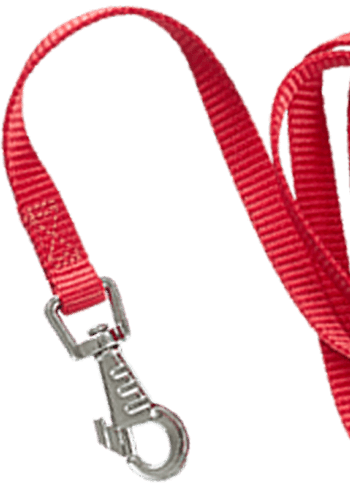
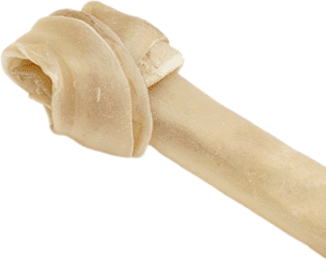
Yellow Labradors are among the most versatile coloration of Retriever breed, ranging from a creamy yellow to a foxy red. But the rarest coloration is the polar bear lab, whose genotype requires a lot of expert knowledge on genetics and safe breeding. Originally bred as show dogs, the polar bear lab is one of the most gorgeous and well-favored dogs in the world.
If you’ve ever come across a white Labrador, then you’ve just met a polar bear lab! “Polar bear” is a nickname used for white Labradors because of their striking resemblance to polar bears. Both have the same pure, iridescent white coat with black pigmentation around the nose, mouth, and eyes.
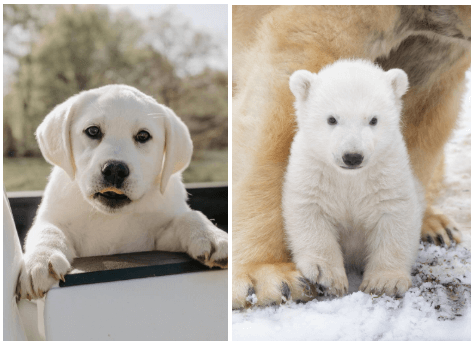
However, the American Kennel Club (AKC) only officially recognizes three Labrador colors, which are black, chocolate, and yellow. So, where do white labs fit in?
White Labs, or polar bear labs, are a variation of yellow labs. Some people refer to them as the palest shade of yellow, which qualifies them as an official color for Labrador Retrievers. This coloration came to be when people began experimenting with phenotypes and genetics, and so different colored labs started making their way into people’s hearts.
There are several coats with their own variations, including:
Interestingly, each color has its own reputation! Black labs, for example, are the most common type and have been commonly used as gundogs. Chocolate labs are excellent in the field since their coats blend in with surrounding foliage. Finally, yellow labs are most recognized as service dogs, since they are known for their patience and companionship. White labs are specifically trendy show dogs.
But obtaining the color of a polar bear lab is no easy feat. It takes experienced breeders who have plenty of knowledge in phenotypes and genetics to breed an all-white Labrador.
Obtaining the exact polar bear color takes several generations of dogs by slowly phasing out the yellow color in the coat. This is done by consistently pairing paler labs with other pale labs to produce the famous milky-white color.
To understand how this is possible, you have to have a basic understanding of how genetics work. For starters, there are three possible gene combinations that a dog could inherit, which are:
B stands for eumelanin, which is the dominant black gene that makes a black lab’s coat. The little b has less eumelanin, which means it may cause a chocolate coat. Black is a dominant gene, which means it’s always going to look like E.
But where do white labs come in?
Dogs that don’t have any BB or Bb in their genes will then have EE or Ee, which are a recessive gene that masks the dominant B gene, meaning that you’ll always get a yellow coat. It will look like this:
A combination of B and E can lead to a yellow Labrador, with options being eeBB, eeBb, and eebb.
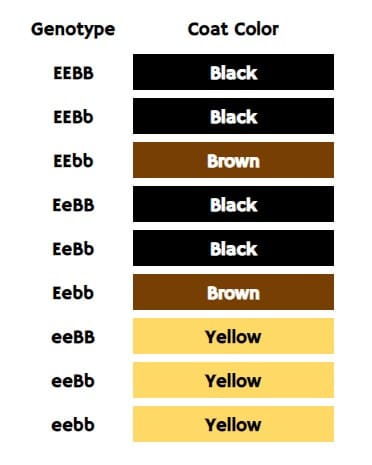
True white labs will always have a dark pigment — which is why their features are often black. Notice that e is always first because it is a masking gene, and completely overrides the dominant B gene.
Essentially, breeding polar bear labs with their great dark features is a game of mixing and matching. Breeders have extensive knowledge of the parents’ genes so that they can better predict the color outcome of the puppies.
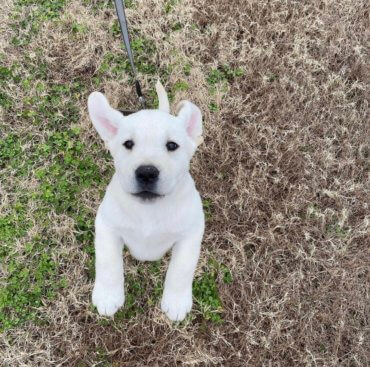
Studying all these types of genetics may seem like a lot of work to guarantee white lab puppies, but it’s for a great purpose. White labs are among some of the popular Labrador types because of their gorgeous coat and winning personalities.
More often than not, white labs are English labs, since American white labs are usually yellow. But the differences don’t entirely stop there: English labs are famously more calm and docile compared to their American counterparts, so they are perfect for families with children. They are also shorter, stockier, and broader, which makes them excellent show dogs.
Some dog breeds are more aloof and stubborn than others, but labs couldn’t be any more different. They are famous for their eagerness to please, meaning that they crave a leader and are very susceptible to learning commands, tricks, and socialization skills.
Labrador Retrievers descend from dogs that retrieved and fetched things for people — and the apple doesn’t fall far from the tree. Today’s labs are just as ready to play and must be kept busy with plenty of physical and mental stimulation. While English white labs are generally calmer, they still require plenty of exercise and playtime.
Labradors are one of the most common breeds that act as service dogs, which are incredibly vital roles that require a lot of training. Service dogs provide support to people with disabilities by assisting during daily activities or providing aid in the event of an unexpected emergency.
Polar bear labs are known for their beautiful white coats and striking dark features, but they’re also among the best dogs to own. Holding the number-one spot as America’s favorite dog, labs are known for their calm and playful personalities, which makes them perfect for any size family.
If you are interested in adopting your own polar bear lab, then there’s good news: Snowy Pines White Labs is a state-of-the-art facility that specializes in breeding the best of English Labradors. Snowy Pines always guarantees great temperaments, health records, and of course, a gorgeous white coat. Take a look at Snowy Pines’ amazing polar bear lab puppies today!
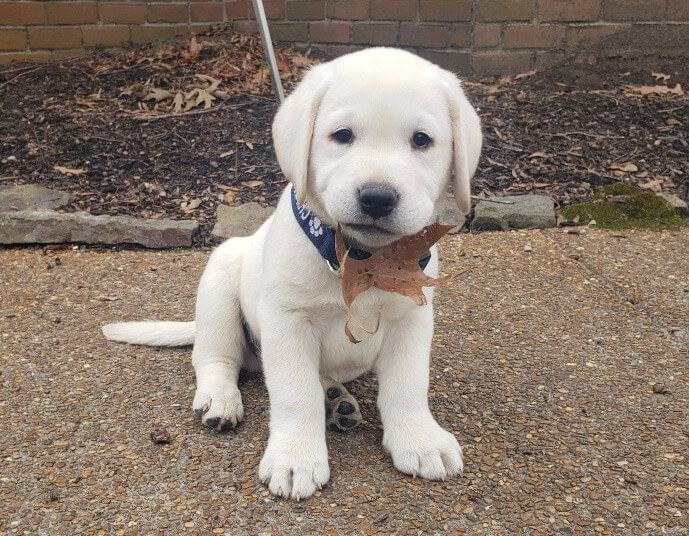
Our Maddie died today, I’m looking for a white female , I’m so sad
Comment by Pamela habe on May 28, 2020 at 3:03 pmWe are so sorry for your loss Pamela.
Comment by Snowy Pines White Labradors on June 3, 2020 at 9:36 am